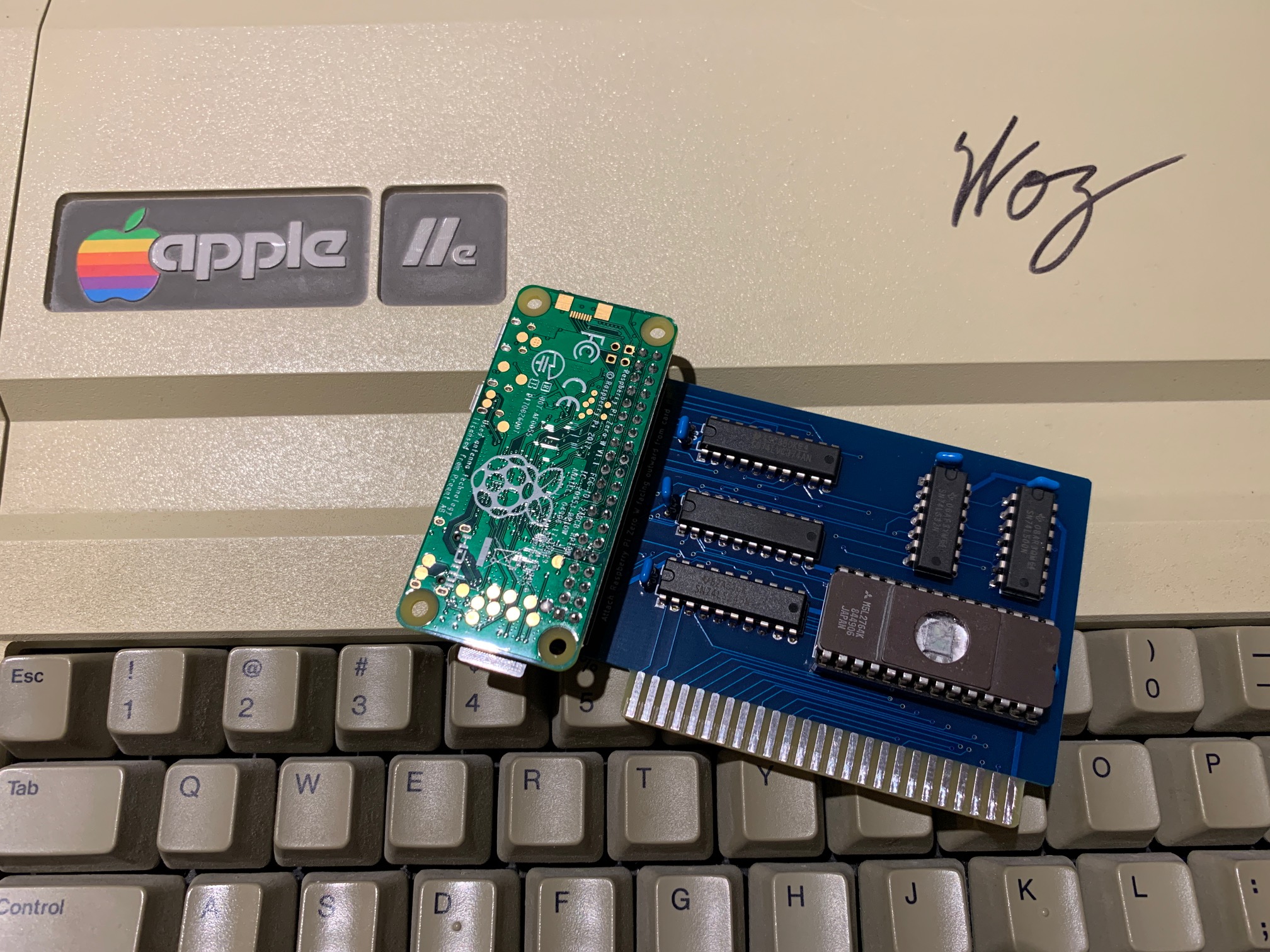Apple2-IO-RPi
Apple II expansion card using a Raspberry Pi for I/O
Purpose
The purpose of this project is to provide I/O for an Apple II series 8 bit computer via a Raspberry Pi Zero W which is powered by the Apple II expansion bus. Initially this is storage via virtual ProDOS compatible drive. Next might be adding virtual serial card support over wifi. Future enhancements could use the RPi for more complex processing as per request from the Apple II. For example, the Apple II could request a web page or application and the RPi could calculate this in Apple II hi-res graphics mode and send the image data back to the II for display purposes.
Project Status
This is an early stage project. Currently one board has been assembled and tested. It is now possible for the Apple II to boot from and write to a virutal hard drive image stored on the RPi in any slot. The code has no error handling or tests yet and is incomplete.
Roadmap
- DONE - Build initial prototype that reads/writes virtual hard drive
- DONE - Create firmware to make the card a bootable device
- DONE - Fix board with updated second prototype PCB
- WORKING - Add ProDOS clock driver (real driver later, for now just directly sets values)
- WORKING - Add RPi terminal access (does not keep context between commands yet)
- Add web service call support
- Proxy VNC connection, rendering as Apple II compatible graphics
- Create new schematic/PCB with faster data transfer
Setup
- Have PCBs made from the gerber and drill files in the Hardware folder
- Solder chips, header and capacitors in place
- Attach Raspberry Pi Zero W facing outward from the card
- Install Raspberry Pi OS on microSD card
- Configure wifi in boot/wpa_supplicant.conf
- Add empty ssh file boot (for ssh access over wifi)
- Put microSD card in the RPi
- Install the expansion card into the Apple II
- Power on the Apple II
- Install Go on the RPi over ssh
- go build Driver.go
- Copy a ProDOS hard drive image onto the RPi
- ./Driver HARDDRIVE.hdv
Similar Project
If you're looking for complete hardware design or prefer having Apple II peripherals control a control a Raspberry Pi rather than simply using the Raspberry Pi to provide storage and network access to the Apple II, have a look at David Schmenk's excellent Apple2Pi project.
